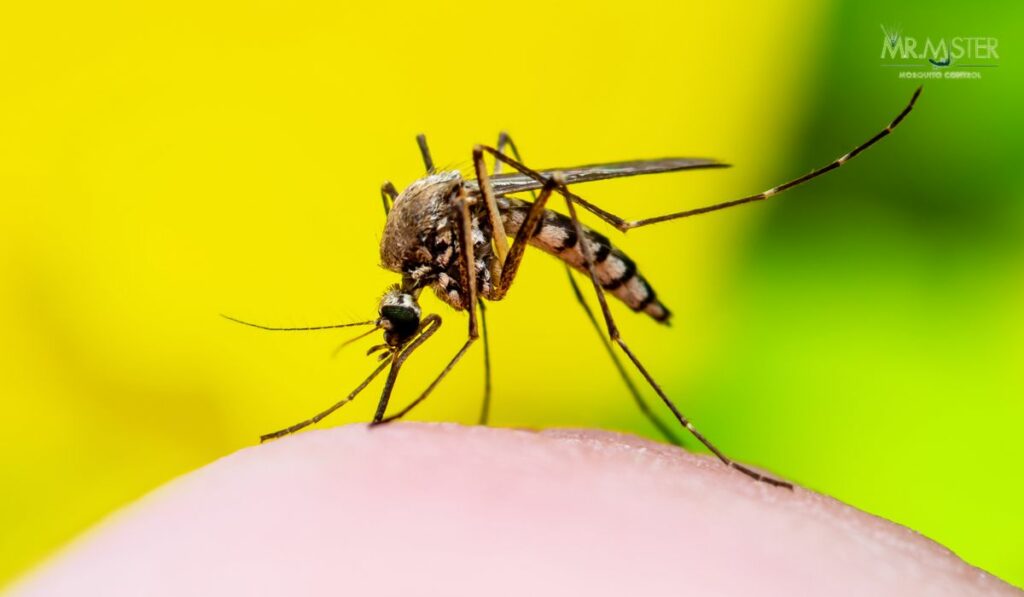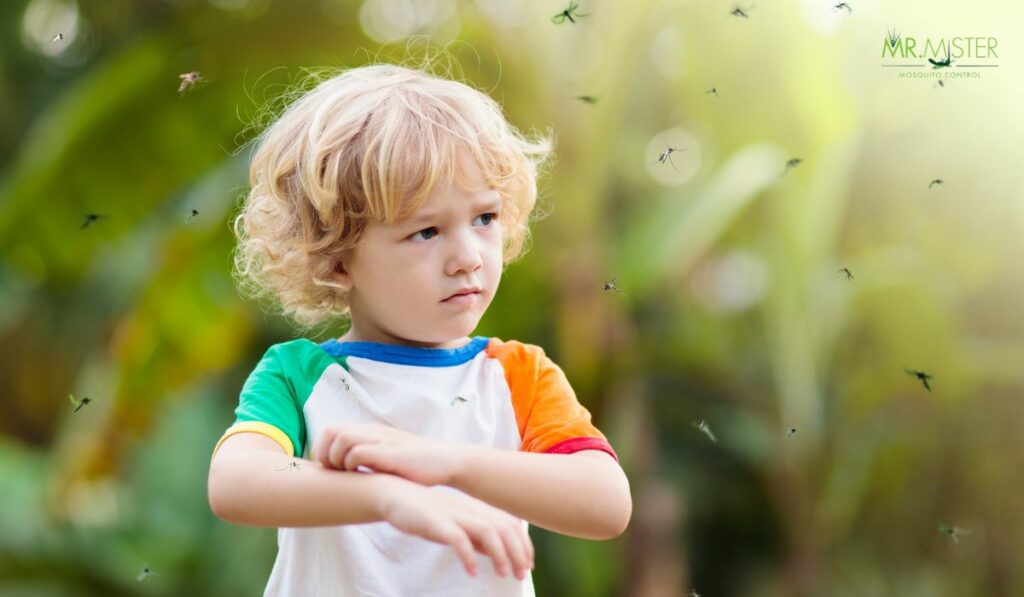Little-Known Mosquito Facts You May Not Know
Summer is one of the most enjoyable times of the year.
However, with warm weather and humidity comes the unwelcome threat of mosquitoes.
These pesky bugs are not only annoying, but they also carry disease.
That is why it is a good idea to be well-informed when it comes to mosquitoes.
There are plenty of little-known mosquito facts associated with mosquitoes and their behavior.
The more you know, the better you can be prepared to fight off these dangerous pests.
FACT: Mosquitoes Need Standing Water
Mosquitoes need water to breed.
Most mosquitoes lay their eggs in standing water, where they will hatch and spend their larval stage.
Some mosquitoes lay eggs near water but need it just the same.
Areas that are likely to attract breeding mosquitoes include gutters, flowerpots, birdbaths, and even pet dishes left outdoors.
In addition, buckets, wheelbarrows, and kiddie pools can also attract mosquitoes.
Any place where water puddles accumulates can be the perfect breeding ground for mosquitoes.
Even recycling bins and trash cans with a small amount of water at their base can present trouble.
FACT: You Will Never Eliminate Mosquito Breeding Grounds
Mosquitoes need water, but they don’t need much.
Many studies show that mosquitoes can lay their eggs in an amount of water so small it could fit in a bottle cap.
In your yard, that could look like a divot in patio furniture, a piece of trash, or even a cupped leaf.
We often stress the importance of reducing standing water on your property.
But it is practically impossible to get rid of every last thimbleful of water.
Instead, you need a professional spraying solution like Mr. Mister to eliminate mosquitos.
FACT: Not All Mosquitoes Bite, And They Don’t Eat Blood
Many people assume mosquitoes live off of human blood. But that couldn’t be farther from the truth.
Only female mosquitoes bite, and the reason has to do with something only the females can do: lay eggs.
Both male and female adult mosquitoes get their sustenance from nectar.
But nectar doesn’t have a lot of protein, which females need to build their eggs.
So female mosquitoes source their protein from the blood of mammals (mostly).
And humans are a perfect target for a bloodthirst mother-to-be.
FACT: It’s Not the Bite That Causes the Itch
Another little-known fact about mosquitoes and mosquito bites is that the itch isn’t the result of the bite.
The itch and other adverse reactions are caused by saliva that is injected into the bite site.
The saliva of a typical common mosquito contains several different types of anticoagulants and digestion enzymes.
These chemicals keep your blood flowing freely as the mosquito extracts it.
Your body’s histamine reaction to all those chemicals is what makes you itch.
FACT: Some People Are Allergic (And Some Aren’t)
One of the little-known mosquito facts to consider is that some children (and adults, too) are more sensitive to mosquito bites than others.
Anytime a child has a severe allergic reaction to a mosquito bite, it is crucial to seek medical attention as soon as possible.
While some children become less allergic to mosquito bites as they grow older, others become more allergic.
Everyone is different, so it is important to seek medical attention whenever there is a severe adverse reaction to a mosquito bite.
On the other hand, if you know someone who seems never to get bitten, it may be that they just aren’t as allergic as most people.
The body’s response to mosquito saliva is what causes the bump and the itch.
Some people just don’t have a very strong reaction, so even if they are bitten just as often, you wouldn’t know it.
FACT: Mosquitoes Love Kids
Finally, parents should be aware that mosquitoes tend to bite young children and infants more frequently than adults.
It is unclear why, but this is all the more reason to protect young children and infants.
Any time there is high humidity, high temperatures, and standing water, there is a potential for a severe mosquito attack.
Parents should also be aware that mosquitoes tend to bite most frequently during dusk and dawn.
If you can keep your kids indoors at those times, you minimize the risk of bites.
Conclusion
As you enjoy the summer months, arming yourself with knowledge about mosquitoes can help you better protect yourself and your loved ones.
Understanding their breeding habits, feeding patterns, and the factors that influence their behavior can make a significant difference in minimizing their impact.
Whether it’s eliminating standing water, using repellents, or taking preventative measures, staying informed about these little-known mosquito facts can go a long way in ensuring a more comfortable and enjoyable summer experience.
FAQs
How do I effectively repel mosquitoes?
To repel mosquitoes, use EPA-approved mosquito repellents, wear protective clothing, and eliminate standing water around your property.
Do mosquitoes prefer certain blood types?
Yes, studies suggest that mosquitoes may be more attracted to people with Type O blood.
Can mosquitoes transmit diseases?
Yes, mosquitoes are known vectors for diseases such as malaria, dengue fever, Zika virus, and West Nile virus.
Are electronic mosquito repellent devices effective?
The effectiveness of electronic mosquito-repellent devices can vary. Some studies suggest they have limited effectiveness compared to other methods.
How can I protect my home from mosquito infestations?
Regularly inspect and maintain screens on windows and doors, seal gaps and cracks in your home’s exterior, and eliminate sources of standing water.
Can plants repel mosquitoes?
Certain plants like citronella, lavender, and mint can help repel mosquitoes when placed in your garden or around outdoor seating areas.
What is DEET, and is it safe to use on skin?
DEET is a common ingredient in mosquito repellents. When used as directed, it is considered safe for most people, including children and pregnant women.
Are there natural alternatives to chemical mosquito repellents?
Yes, natural repellents containing ingredients like lemon eucalyptus oil, cedar oil, and neem oil can offer protection against mosquitoes.
How can I soothe mosquito bites?
Calamine lotion, hydrocortisone cream, and ice packs can help alleviate itching and discomfort from mosquito bites.
Can mosquito-borne diseases be prevented?
Yes, practicing good mosquito control around your property, using repellents, and avoiding mosquito-prone areas can significantly reduce the risk of mosquito-borne diseases.
* Schedule a Free Mosquito Control Consultation – 404-941-0720 *
* Guaranteed Results * 100% Biodegradable * Locally Owned







